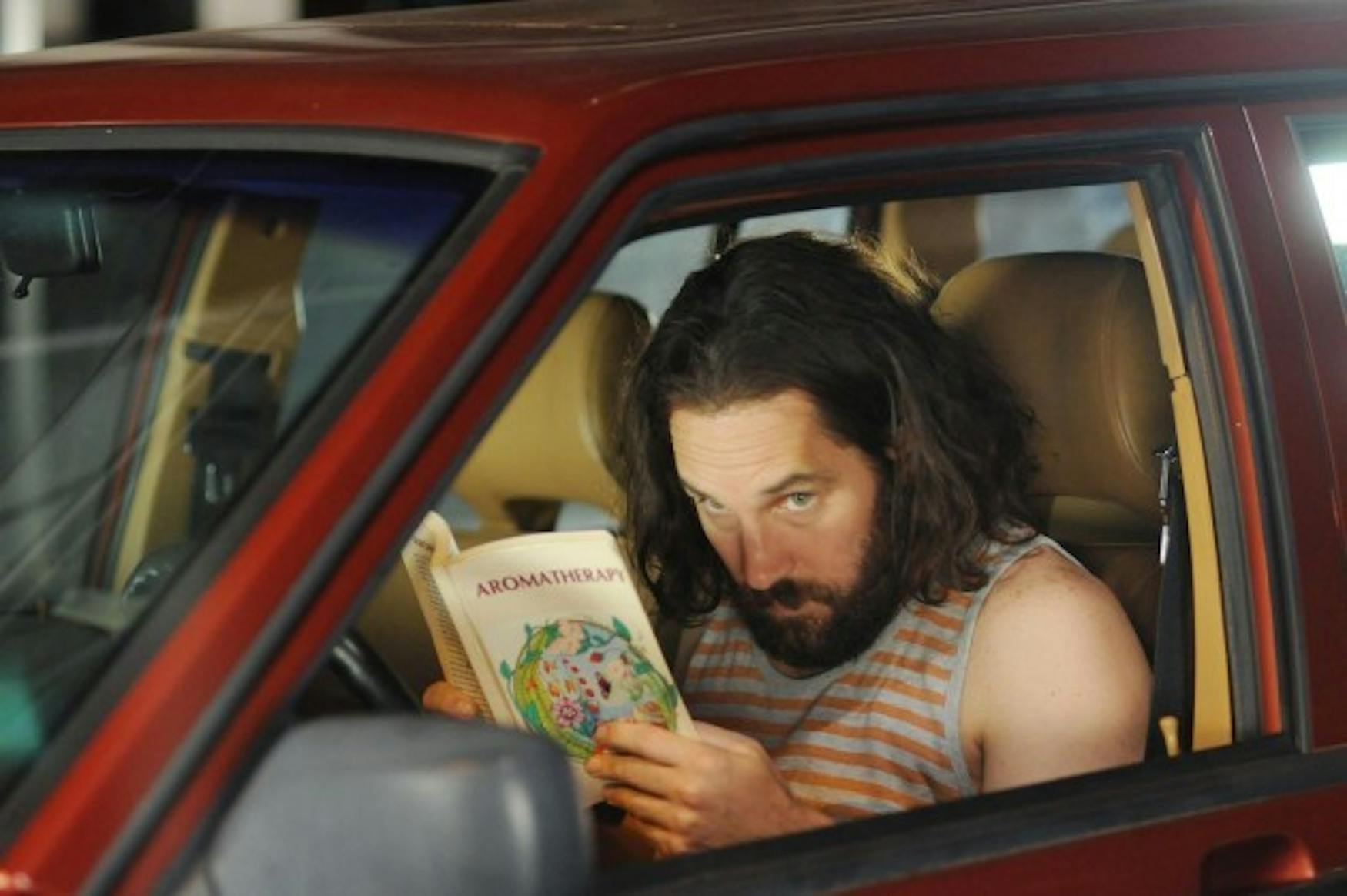Plot of 'Our Idiot Brother' tries too hard
Is there anything not to like about Paul Rudd? The guy is cute (in an approachable way), witty and hilarious, but he rarely crosses the line into bathroom humor the way some of his frequent collaborators do—I'm looking at you, Will Ferrell and Seth Rogen. His charm and deadpan delivery have made many of his characters, who would be otherwise unmemorable, the scene stealers and highlights of several of the best comedies of the last decade.
It is this charm and wit that carries Our Idiot Brother, Rudd's latest movie and one of the few in which he plays the main character. Rudd plays Ned, an organic farmer with a penchant for classic country music and a desire to see the best in everyone. This desire often overrules common sense, as in the first scene when Ned sells marijuana to a uniformed police officer because the cop complains he is having a "bad week." Ned sympathizes and is thrown into jail for 9 months for his trouble.
This is just one example of the way that Ned's chosen outlook on life backfires. His never-ending supply of good faith toward his fellow man makes him appear clueless and almost childlike. Even after he sees the negative consequences of his complete honesty, it never sinks in that it is sometimes more important to stay quiet than to share his thoughts with the world, particularly when those thoughts concern the lives of other people.
Upon his release from prison, Ned returns to his farm, only to find that his girlfriend of 3 years, Janet (Katherine Hahn), has moved on with Billy (the hilarious T.J. Miller), a similarly crunchy and dim-witted guy. Adding insult to injury, Janet is keeping Woodie Nelson, Ned's beloved golden retriever. With no job, dog or place to go, Ned calls on his family for support.
Enter his three sisters: Miranda (Emily Banks), Natalie (Zooey Deschanel) and Liz (Emily Mortimer). These women represent three basic female archetypes: the ball-busting career woman with no time for romance, the free-loving artist and the exhausted housewife, respectively. None of these characters is ever fleshed out enough to make the audience actually care about them in their own right.
This is a shame, as each of the sisters, if given more screen time, could add a lot to the plotline, which focuses too much on Ned's overwhelming honesty and general niceness. The audience can only empathize with a completely amiable guy for so long before it gets a little boring.
Natalie, in particular, is an interesting subject: one half of a lesbian couple with partner Cindy (the entirely underused Rashida Jones), Natalie would seem like Ned's perfect ally against the rest of their more normative family. Instead, Deschanel plays out the tired cliché of a woman in a committed queer relationship who is seduced by a man. (Don't worry, this isn't much of a spoiler as Natalie only appears in three or four scenes in the movie. She is the least present of the three sisters.)
Natalie, as the more feminine woman in her relationship, is written as bisexual rather than gay and therefore, of course, is more likely to be in need of a man at some point during the film. Audiences have seen this scenario on screen more than once, even in "queer" films and television shows such as The Kids Are All Right, Chasing Amy, The L Word and Queer as Folk. These storylines suggest that many filmmakers view lesbian relationships as less valid and less stable than straight ones, particularly if one woman in the relationship is bisexual or even "straight-acting." Other than this plot device, the rest of Our Idiot Brother is actually quite progressive, considering that the protagonist is an organic farmer who values honesty and the comfort of others above his own needs. The inclusion of Natalie's dalliance with a man, as opposed to just having her cheat with another woman, adds an unnecessary bias into the film.
Sisters Liz and Miranda aren't portrayed much better. Miranda is a self-centered journalist who finds Ned annoying and tiresome, and Liz is a mom who is so worried about the health and safety of her children that she won't let her son eat a piece of cake 2 days in a row. Each sister ends up blaming Ned and his good intentions for the problems that arise in their own lives, though it is their brother who ultimately causes them to think more deeply about their attitudes and actions.
In the end, Our Idiot Brother pretends to be a quirkier and more alternative film than it really is. Despite several life-changing events, none of the characters evolves, including Ned, who remains a socially awkward child until the credits roll. Hopefully, in the future, Rudd will take center stage in films that are both funnier and more original than this.



Please note All comments are eligible for publication in The Justice.